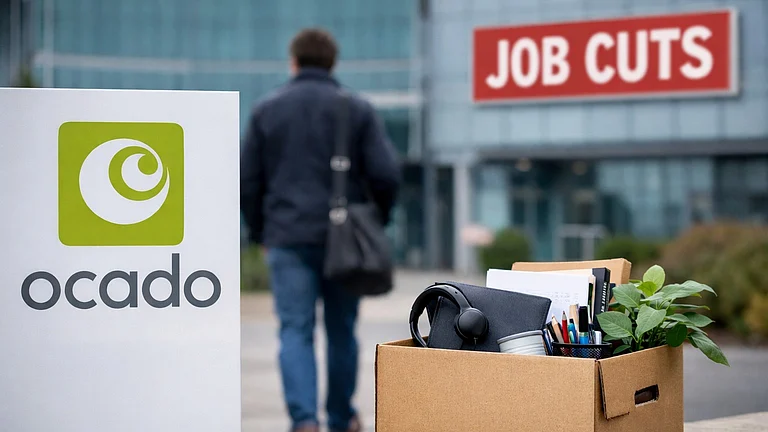In the Oscar-winning movie It Happened One Night, a road trip from Florida to New York culminates in Claudette Colbert and Clark Gable (the lead pair) falling in love with each other. Travel and the road journey almost become a metaphor for the emotional journeys that the protagonists undergo in the black-and-white romantic classic.
That’s Hollywood. In India, however, instead of women running away on a trip to discover their emotions, there are arranged marriages. And two starkly different people find themselves having to live together. That’s the story of engineer-turned-entrepreneur Rishabh and finance specialist-turned-educator Nirali Shah.

Known as the Gypsycouple on Instagram, these two disparate people, much like the protagonists, found their common ground in travel. Their travel preferences are quite polarised as well—while Nirali is a mountain person, Rishabh loves the beaches. Plus, the husband is an instinctive traveller and the wife likes to plan everything well in advance.
“During our honeymoon, we discovered that the only thing that was common between us was our love for travel. We knew that we were in a joint family set-up, so if we wanted to do something together, travel was the only thing,” laughs Nirali.
Their journey as a luxury travel influencer couple began with their honeymoon trip to South Africa and Mauritius. During the 14-day trip, the newly-married couple—with close to 40,000 followers on Instagram—realised that Rishabh had a keen interest in photography while Nirali loved turning into his muse. Thus began the process of documenting their travels. They have travelled to as many as 100 destinations together.
The posts on the Gypsycouple handle tell the story of two young people travelling to places, going out on dates and sharing a life. It’s the story of the people we see around us—from travel pictures in Ladakh, Diu, Dubai, to celebrating each other’s birthdays. Amidst all that, there are sponsored content and brand collaborations as well.
Initially, the couple started their digital journey with a blog to document their expeditions. Within six months to a year, they got overwhelming feedback on the blog. “Earlier, we used to document at our own pace. But after a point, people started writing to us to be more regular on the blog. It was then that we figured that we have a responsibility towards the people who were reading our blogs and saying ‘you guys have inspired us, what are you going to do next?’,” says Rishabh with a smile.
They next moved to Twitter and it was here that people suggested they move to Instagram—a picture-only platform. Gypsycouple has been creating content on Instagram for five years now.
“We found a huge following on Twitter (over 50,000), which was several times more than that of Instagram. But right now, we are mainly creating content for Instagram because that’s what people like seeing. Twitter isn’t really the place for such kind of content,” Rishabh says.
Becoming big on social media is similar to achieving celebrity status. Nirali says that they realised this during a trip to Hampi, where people approached them like they were celebrities. “In these small places, they talk to you like you are some stars,” says Nirali. Though initially, the fame felt overwhelming, they got used to it gradually, she adds.
There have been some bitter experiences as well. Social media, as a medium, can give a lot but it also opens you up for unnecessary, and sometimes, harmful scrutiny. Access and unwarranted opinions are part of the package. Though Nirali and Rishabh say they haven’t faced cyberbullying the way a lot of other influencers have, they have had to deal with unsolicited opinions.
“The word ‘gypsy’ in several countries, especially Romania, has a very negative connotation to it with political and social associations. But we based the name on the nomadic tribes that originated from the areas around Rajasthan and Gujarat. We want to pursue a nomadic life—that’s how we arrived at the name. So, on Twitter, people of Romanian origin demanded that the name should be changed,” Rishabh says.
With both having full-time careers, planning travel sometimes becomes challenging. But they have found a solution—if on one trip Nirali adjusts her leaves according to Rishabh’s dates, on the next, Rishabh manages his leaves. The ride has been easy thus far.
The world of digital marketing and brand collaborations were at its nascent stage about seven years ago when Rishabh and Nirali began their journey as influencers. But today, the world of influencer marketing is exploding. Digital marketing agency AdLift has estimated India’s influencer marketing market to be worth $75-150 million annually out of the $1.75-billion global market. The couple, too, understands the changing scenario. “Initially, collaborations were a mix of people inviting us and us reaching out to them. But over a period of time, we realised that if we are collaborating or adding value, we should be charging money for it. Now, we charge an amount not because we want to earn out of it but because we deserve it for the value we add,” Rishabh explains.
With brand associations, the couple has a list of things that it is sure it would never promote. These include gambling, alcohol and non-vegetarian food since they are themselves vegetarian. “We have been offered insane money for products from these sectors. Honestly, money does have a way of enticing you. I would be dishonest to myself if I say I wasn’t tempted. But that’s a momentary temptation. If I am not consuming it myself, then why even think of promoting it?” says Rishabh.
According to Nirali, there has been a huge mindset change and increased awareness about the influencer business. While nobody in her family, for example, really understood what sponsored travel meant when she started off as an influencer, more and more people are now getting aware of this model of marketing.
“People used to get confused between influencing and generating sales. Influencers are not agents; we cannot guarantee sales. We have a certain number of followers, a certain level of engagement. So, we can promote it to our audience. Whether or not that would translate into sales or footfall is not our headache. But that is changing now as people are understanding what the influencing business is,” Nirali explains.
Brands, too, tap into the buzz-building ability that influencers bring in. Nirali and Rishabh collaborated with the Sweden-headquartered audiobook company Storytel. “We were looking at increasing our subscriptions through the collaboration. And since the brand is very new in the market, it was more about spreading awareness. Collaborating with them helped as they were able to reach a larger audience,” Ankita Verma, marketing and communication specialist, Storytel says.
The brand, which allows a consumer to go hands-free on books, was looking to target various sectors for their product. Travellers were potential consumers for this product which is why the brand decided to tie up with travel influencers.
Influencer marketing has grown significantly in the past five years. Sukriti Sharma, brand and marketing manager Storytel, explains how it is largely because e-commerce is a consumer-centric business and the business is happening online. For brands, influencer marketing is a good way to understand consumer behaviour and what people are buying.
With celebrity tie-ups, brands get immediate visibility. However, she explains that while brand recall plays on a consumer’s mind because of a celebrity’s face, if any consumer has to spend money, they would not buy a product merely because a celebrity endorsed it. Influencers help customers discover content in a deeper and richer manner, she adds.
***
Gypsycouple’s Favourite Brand Campaigns
- Ather – The campaign was executed during the pandemic where they stepped out for the first time to shoot.
- Shaadi.com – It was a campaign surrounding karwa chauth where the husband was asked to sacrifice food for the wife.
- Nissan – The campaign was about promoting the importance of seatbelts, the backseat ones, in particular.
- Madhya Pradesh Tourism – They got to explore smaller centres that were rich in culture and religion—a bit different from their usual beat.
- Storytel – With Nirali being an educator, audiobook as a concept was interesting.































